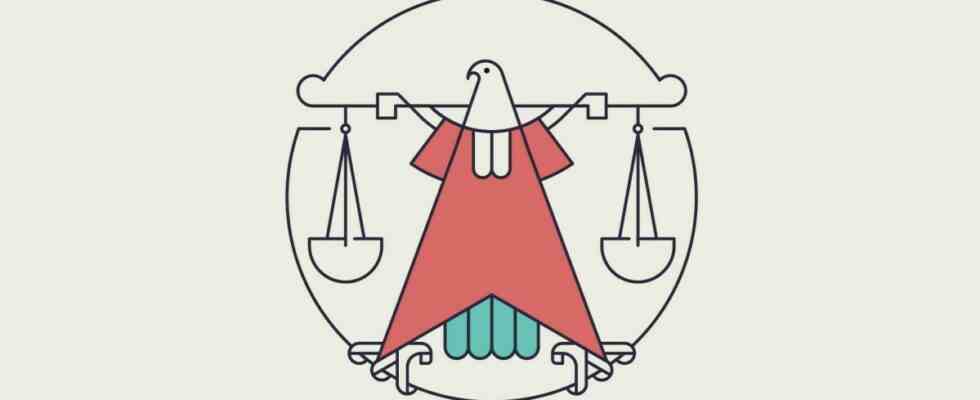The woman impressed the reporter with her elegance. “You’d think she was from the Russian Ballet,” he enthused. She was apparently a member of a criminal gang. She had just cleared out an apartment in Berlin with an accomplice.
The court reporter Paul Schlesinger, stage name “Sling”, dedicated one of his reports to this woman almost a hundred years ago. The woman described her entire tragic migration story, but “the judge is not edified by the story because she has problems with the German language.” Sling’s workplace was in the corridors and halls of the criminal court in Berlin-Moabit. Here he wrote stories of outsiders, of refugees who kept coming back. And it’s worth remembering today: their names didn’t sound Arabic or Turkish. But mostly Russian and Jewish.
It was not due to any of the court reporter’s preferences that he saw so many Jews from Eastern Europe in the court. Many of them had fled the pogroms in the crumbling tsarist empire. Girls “from the darkest Galicia”, as they also appear in Alfred Döblin’s novel “Berlin Alexanderplatz”, “shimmering like a flower in the shop window”: accused of theft, brought out of custody. Theft out of necessity, or for lack of alternatives. Those who are marginalized in society have always been the focus of criminal courts.
Today, some in Germany therefore urgently want to discuss integration refusals. Look here, they say: If you walk through a court like the one in Berlin-Moabit, stop in front of any room and then read the names of the accused on that day, which are on an A4 piece of paper, then the first names are on you Day in December, for example: Aliona and Artom, Sergei, Alexander, Kevin, Georgii, Vasilii and Svitlana, Mirnes, Sabrina, Patryk. Isn’t that proof that foreigners are more criminals? That even with perpetrators who may have a German passport, a foreign origin is behind it? A culture of violence? A hundred years ago, court reporter Sling would have smiled wearily. What an unoriginal, old-fashioned observation.
The literature has described it a thousand times, even before statisticians did the math: the poor steal more often than the rich. Outsiders more often than insiders. People who have fewer chances of participating in the good life through legal means are more likely to try things differently, at least statistically speaking. Some slip into drugs and violence. The problem is not specific to any culture, but it is certainly ethnic-related. The reason is that, on average, people of foreign origin have poorer opportunities in society. That was the case a hundred years ago.
At this point, Verena Mayer and Ronen Steinke write in weekly alternation about their experiences at German courts.
(Photo: Bernd Schifferdecker (Illustration))

